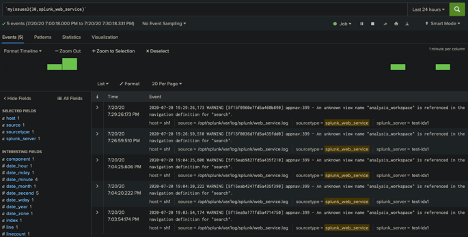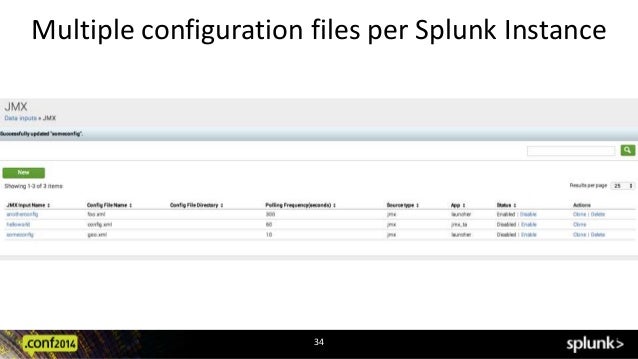
stats count by er, data.email | rename data. I guess learning this method is always better, since it also works Is not the same as stats count by er | rename er to user IMPORTANT: Even though Splunk does not show the new lines, it will come out as expeected in JIRA!įor some wacky reason, stats count by er as user Use nomv to teach JIRA to recognize multi-value rows, then use rex to replace spaces with new lines. Use mvexpand to split multiple results from rex into their own separate rows
#SPLUNK EVAL IF STATEMENT TRIAL#
Through lots of trial and error, I have found these patterns to work nicely: However, Splunk is a terrible means to nicely format output, especially when trying to send Often this also means better usability, as it takes less mental energy to parse output Which means, if you have a column of either empty string, or value, and you want to get empty strings only, use NOT rather than !=. Turns out, empty string is considered "not existing". When doing this, remember to put search in the subsearch! Otherwise, it won't work at all. Objective: Determine which IPs in `suspicious_ips` have NOT been logged in `valid_ips`. This is a semi-complicated example I've used: Example Logs: Log in `api_logs` should be as unique as possible, so that it won't pull information Searches for its useragent from `nginx_logs`. This searches all logs and tries to cross-reference a request-id from `api_logs`, and (endpoint="/userinfo" AND request-id="random-hash") OR user="random-hash" However, there are other ways to formulate your query! See this link for inspiration. A close enough analog is that each line in SPL is similar to a single command in bash (hence the pipe separator between commands).

ago Not sure if there is a requirement to merge them, but if not I think this will do what you’re looking for. at 2:54 I see what you're asking - but you haven't said what you're trying to do :) SPL doesn't do 'loops'. However, some older splunk versions do not support it. Is it possible to write an if statement like this: eval xyz if (eventtype'login-authentication', stats count eventtype as events' 'No Dice') 6 4 comments Best Add a Comment BenMcAdoosElCamino Because ninjas are too busy 3 yr. This is used for funneling the output of one splunk query, into another query. | eval ip_addr=if(isnull(ip_addr), "null", ip_addr)
#SPLUNK EVAL IF STATEMENT CODE#
Trying to use a nested value in a dictionary, in an eval statement? Use rename first! Example Entry: The following code allows us to generate 10 random numbers, and then determine if those numbers are even or odd: makeresults count10 eval randomid. # eval word = "foobar" | eval short = substr(word, 1, 3) | table short Substrings eval variable_name = substr(variable, start_index, length) String Concatenation eval variable_name = "string1". # This is especially handy when you want to ignore whitespace! String Replacement rex mode=sed field=your_field "regex_statement" If you're trying to get multiple matches, use max_match, where max_match=0 finds unlimited matches. | eval status=if(messageStatus = "undelivered", "fail", "success") | rex field=context.MessageStatus "(?\w+)" Instead, we need to do the following: index="my_log" If you're unable to match field values as you expect, extract the non-whitespace values from the field and compare against that instead.įor example, in the below example, ssageStatus may contain whitespace, so Splunk won't capture them with a standard =. Strings String Matching (with whitespace supression) Analysis Events over time index="my_log"Īrrays Does an array contain a specific value? "array_name', array_index)
#SPLUNK EVAL IF STATEMENT HOW TO#
Why is it so hard to find out how to do a certain action? So this is a cheatsheet that I constructed to help me quickly gain knowledge that I need. | eval tech_Name = 'clientTech.I really don't like Splunk documentation. | eval priority = 'prioritytype.priorityTypeName' | eval status = 'statustype.statusTypeName' | eval location_Name = 'location.locationName' | eval techGroupLevel = replace(techGroupLevel, "Level"," Level") The eval command enables you to write an expression that uses extracted fields and creates a new field that takes the value that is the result of that expression's evaluation. | eval techGroupLevel = replace(techGroupLevel, " ","")


| eval techGroupLevel = replace(techGroupLevel, " "," ") ago Should be: eval myfield case (condition 'true', etc. 0 7 7 comments Add a Comment deleted 6 mo. | eval techGroupLevel = 'techGroupLevel.levelName' ago by zorroak11 Case Statement Hello, Please let me know 'case statement' usage clearly. | eval problem_detail=replace(problem_detail, " ","|")

| eval problem_detail=replace(problem_detail, "•","") I have a table showing number of Helpdesk calls and count for the year


 0 kommentar(er)
0 kommentar(er)
